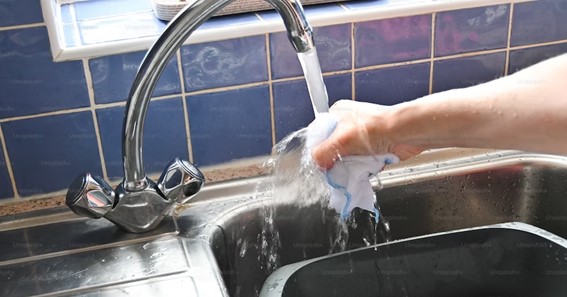Does your bathtub look grimy, even though you clean it every day? Have you noticed strange spots on some of the dishes when you take them out of the dishwasher? Are there mineral deposits on your taps and fixtures? If you’ve answered yes to any of these questions, this article is for you.
Many Australian homeowners turn to the plumber Melbourne locals rely on for expert advice to assist with tips to reduce hard water. Additionally, these plumbing experts have compiled a list of the top tips and hacks to lessen the effects of hard water in your home. Before we dive into these helpful tips, it’s essential to know what hard water is and how to identify it.
What is Hard Water?
In short, the term hard water refers to water that has high mineral content. Essentially, the two minerals that are largely to blame are calcium and magnesium. As water passes through layers of rock, it collects these minerals in trace amounts. The more your water supply interacts with and absorbs these two minerals, the harder it becomes.
In your home, hard water creates water stains where the mineral deposits dry and appear as brown, red, pink and even black stains on metal fixtures, iron pipes, ceilings and toilets. In addition to unsightly stains the chemical build-up on your plumbing fixtures can also lead to a need for blocked drain repair and even replacement.
How Hard is Australia’s Water
The Australian Water Guidelines define water hardness as water where the mineral content exceeds 200 mg per litre (mg/L) of water. This means that areas such as Sydney, where the mineral content is only 50 mg/L are regarded as having soft water. However, Brisbane and Adelaide have some of the hardest water where the minerals reach 100 mg/L. For the most part, Melbourne has a relatively low water hardness.
Expert Hacks to Remove Hard Water Stains
Water stains can worsen over time because the same water is running over the same spot, depositing minerals as it flows. That’s why you’ll see the brown marks in your bathtub get worse over time. Fortunately, our experts have tried and tested hacks to help you rid your home of hard water stains.
-
Showers and Baths
Bathtubs and showers are the most obvious places that you will find hard water stains, since large quantities of water flow there, usually daily. To clean your shower and bathtub, do the following.
- Vinegar is excellent for removing hard water stains, so you’ll need vinegar, fresh water (preferably boiled) and a spray bottle
- Mix equal parts of white vinegar and water in your spray bottle
- Spray the surfaces until they are fully saturated and let sit for 15 to 30 minutes
- Wipe clean with a dry microfibre cloth
Keep in mind that vinegar on its own may not break down the soap scum as effectively. So, you can also make it a habit to pour a vinegar and baking soda mix, followed by boiling water, down the drain to remove soap scum that build up there.
-
Showerheads, Taps and Fixtures
Another common place where hard water build-up is most obvious is your showerhead. Here’s what you should do.
If you can remove your showerhead or the fixture in question, soak it in a vinegar solution for 10 – 30 minutes, scrubbing it clean with boiled water before replacing it.
If you can’t remove the showerhead:
- Fill a strong plastic bag with the vinegar solution
- Use an elastic band or string to tie the bag over the showerhead
- Make sure that the showerhead is submerged
- Leave for 10-30 minutes or even overnight if possible
- Rinse once done
-
Water Spots Caused by the Dishwasher
If you’re seeing water stains in the dishes that come out of the dishwasher, try the following:
- Wash the filter, removable baskets and other components with hot water and dish soap solution
- Fill a cup with white vinegar and set it on the top rack—run for one hot cycle
- Sprinkle a handful of baking soda along the bottom area of the empty dishwasher and run it again
- After the drying cycle, return the removable parts and use your dishwasher as normal
- Do this once weekly to ensure that your dishes stay clean
-
Add a Water Softener
Our experts also recommend adding a water softener filtration system that removes the excess magnesium and calcium from the water before it comes out of your taps. You can speak to your local plumber for advice and recommendations about the best type of water softener for the water tank or system that you have.
Click here – 6 Top Reasons to Add Screens to Your Garage Doors
Final Thought
If you’ve seen water stains forming around your tubs, showers and toilet, the good news is that you won’t need harsh chemicals to remove them. Deep cleaning your tubs, showers, toilets and dishwasher with vinegar and baking soda are excellent ways to get the job done. The real trick is to always use boiling water and sufficient quantities of vinegar. Your home will be stain-free and sparkling in no time!

